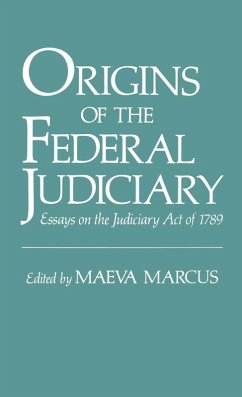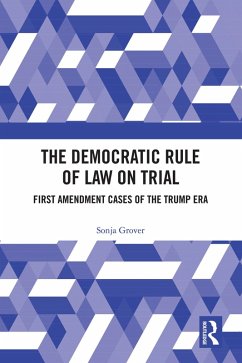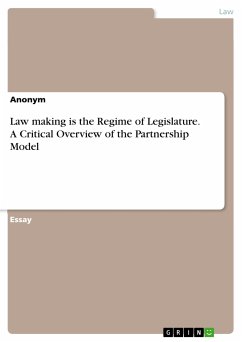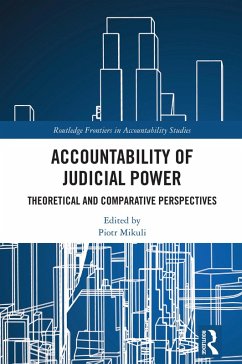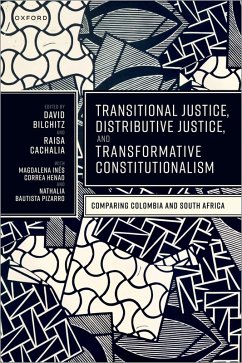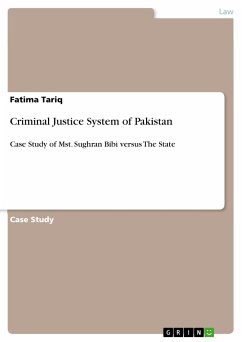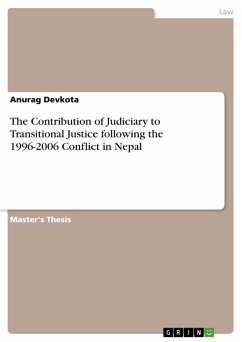
The Contribution of Judiciary to Transitional Justice following the 1996-2006 Conflict in Nepal (eBook, PDF)
Sofort per Download lieferbar
Statt: 31,99 €**
13,99 €
inkl. MwSt. und vom Verlag festgesetzt.
**Preis der gedruckten Ausgabe (Broschiertes Buch)
Alle Infos zum eBook verschenkenWeitere Ausgaben:

PAYBACK Punkte
0 °P sammeln!
Master's Thesis from the year 2014 in the subject Law - Public Law / Miscellaneous, grade: A, Loyola University Chicago, language: English, abstract: As Nepal continues to debate how to deal with the legacy of the internal armed conflict of 1996-2006, the rule of law and transitional justice are of utmost importance in the current setting. This paper aims to find a possible solution to why it is critical that the judiciary is better engaged in Transitional Justice going forward. To that end, the paper explores the non-judicial mechanism as a failed idea in the context of Nepal, the significant...
Master's Thesis from the year 2014 in the subject Law - Public Law / Miscellaneous, grade: A, Loyola University Chicago, language: English, abstract: As Nepal continues to debate how to deal with the legacy of the internal armed conflict of 1996-2006, the rule of law and transitional justice are of utmost importance in the current setting. This paper aims to find a possible solution to why it is critical that the judiciary is better engaged in Transitional Justice going forward. To that end, the paper explores the non-judicial mechanism as a failed idea in the context of Nepal, the significant impact and importance of the judiciary's involvement in Transitional Justice, the complementary roles judiciary could provide to the non-judicial mechanisms, and the possible pitfalls of the judiciary in Nepal. The paper analyzes the constructive role played by the judiciary of Nepal to date and the prospect of dealing with the crimes of the past in the future, as well as establishing prosecution as the best possible option for Nepal in the period of transition. The research methodology used is doctrinal, using the study of reports and scholarly articles as a major source of data collection. Various reports published by different Non-Governmental and Governmental organizations have been used for research purposes as well. Seeing as how the rule of law has been dismantled in this period of conflict, it can be established that judiciary has a better chance of re-establishing the rule of law in Nepal with a primary focus on access to justice through the prosecution. Uncovering the details of the past provides both a primer on what conditions permitted the violations of the rule of law in the past, and a deterrent to would-be human rights abusers of the future. Therefore, examining the crimes of the past via judiciary in the transitional justice scenario could help develop the institutional basis and the cultural norms to support the rule of law in Nepal. However, it is important to be cautious of the possible pitfalls of the judiciary in terms of dealing with the prosecution and its implementation.
Dieser Download kann aus rechtlichen Gründen nur mit Rechnungsadresse in A, B, BG, CY, CZ, D, DK, EW, E, FIN, F, GR, HR, H, IRL, I, LT, L, LR, M, NL, PL, P, R, S, SLO, SK ausgeliefert werden.






